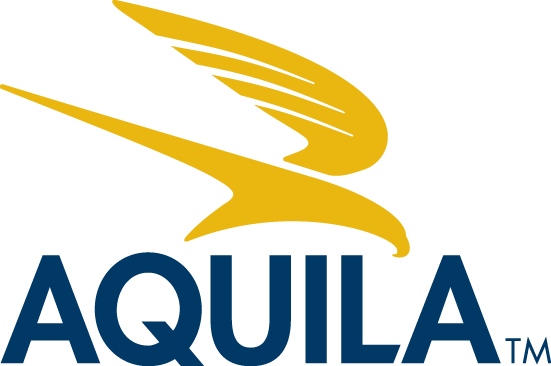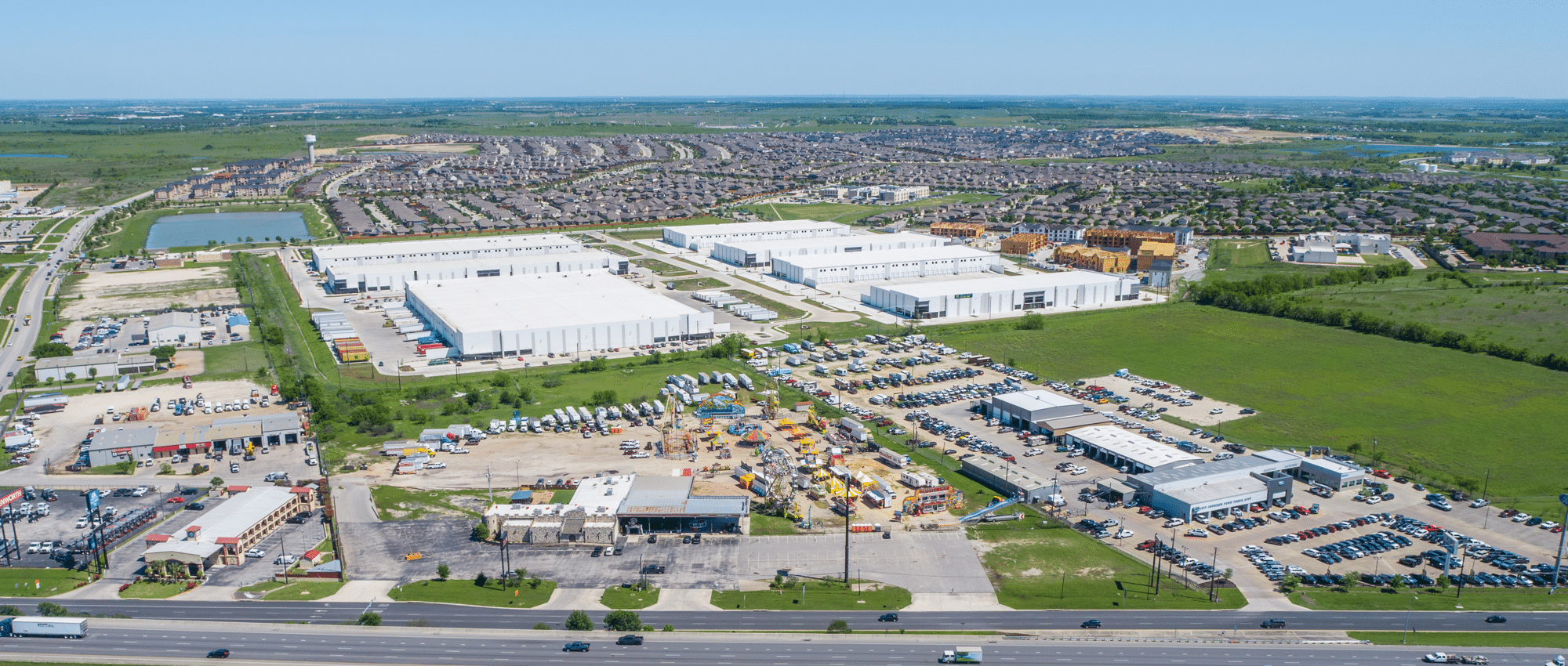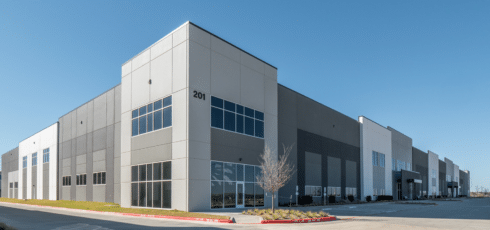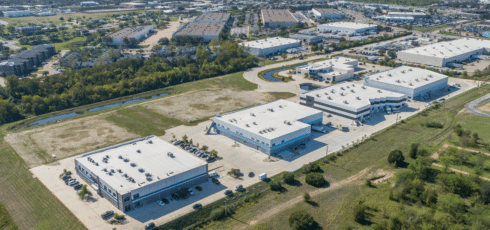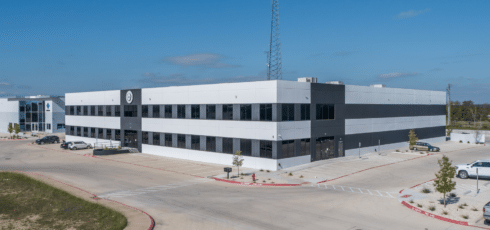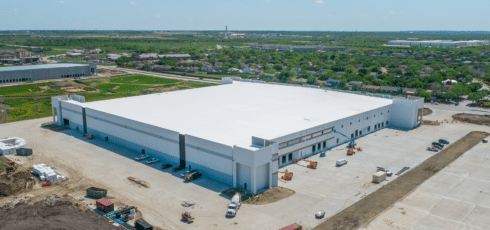Finding the perfect industrial space to lease is a critical decision for any business. The right space can help your company operate efficiently, expand, and thrive, while the wrong space can hinder growth and strain your bottom line.
AQUILA has helped numerous clients navigate the complex process of leasing industrial space. In this article, we will guide you through the seven essential steps to finding the perfect industrial space for your business. Please note that the numbers and rates in this article are hypothetical and simplified for ease of understanding.
Step 1: Define Your Requirements
Before beginning your search for an industrial space, it’s crucial to have a clear understanding of your business’s specific needs. Start by determining the size and type of space required. Consider factors such as square footage, ceiling height, loading docks, and specialized equipment.
Next, evaluate the ideal location for your operations. Accessibility to major highways, public transportation, and proximity to suppliers and customers should be taken into account. Additionally, identify any necessary amenities and features, such as office space, parking, and power supply. Having a well-defined set of requirements will help narrow down your search and ensure that you find a space that meets your business’s unique needs.
Read Next: Types of Industrial Buildings Defined (Warehouse, Flex, Distribution, etc.)
Example
Imagine a growing e-commerce company that specializes in distributing automotive parts. As their business expands, they need to find a new industrial space to accommodate their increasing inventory and streamline their shipping process. To begin their search, they sit down with their team to define their specific requirements.
First, they determine the size and type of space needed. Based on their current inventory levels and projected growth, they calculate that they require a minimum of 50,000 square feet of warehouse space with a clear ceiling height of at least 32 feet to accommodate their high-reach forklifts. They also need at least 10 loading docks to efficiently handle the high volume of inbound and outbound shipments.
Next, they evaluate the ideal location for their operations. As an e-commerce company, they prioritize proximity to major highways and shipping hubs to ensure fast and cost-effective delivery to their customers. They also consider the accessibility of public transportation for their employees, as well as the proximity to their key suppliers to minimize transportation costs and lead times.
Additionally, the company identifies the necessary amenities and features for their industrial space. They require a dedicated office area of approximately 5,000 square feet to house their administrative staff, as well as ample parking for employees and visitors. They also need a reliable and robust power supply to support their warehouse equipment and IT infrastructure.
By clearly defining their specific requirements, including the size and type of space, ideal location, and necessary amenities, the e-commerce company can narrow down their search and focus on properties that meet their unique needs. This targeted approach saves them time and resources, and increases the likelihood of finding the perfect industrial space to support their growing business.
Step 2: Set Your Budget
Once you have a clear picture of your space requirements, it’s time to establish your budget. Determine the amount you can comfortably allocate towards rent and other related expenses. Keep in mind that industrial leases often involve additional costs beyond base rent, such as utilities, maintenance, and property taxes. Another important aspect to consider is the cost of special equipment, build-outs, and moving costs. Some expenses may be covered by your tenant improvement (TI) allowance, but not all. Factor these expenses into your budget to avoid any surprises down the line.
Read Next: How Much Does It Cost to Lease Industrial Space in Austin, Texas? (Rental Rates)
You should also consider the length of the lease term you’re comfortable committing to and the level of flexibility you require. Some businesses may prefer shorter lease terms for greater agility, while others may benefit from the stability of a longer-term lease. It’s important to note that longer leases typically equate to better economics but shorter terms allow more room for growth and flexibility. Setting a realistic budget will help guide your search and ensure that you don’t overextend your resources.
Example
Continuing with the example of the growing e-commerce company, let’s explore how they would establish their budget.
Having clearly defined their space requirements, the company now needs to determine the budget for their new industrial lease. The financial team, in collaboration with the company’s leadership, assesses their current financial situation and projects future revenue growth to determine a comfortable range for monthly rent expenses.
The team takes into account the base rent for properties that meet their size and location requirements, which averages around $12 per square foot per year in their target market. For a 50,000-square-foot warehouse, this translates to an annual base rent of approximately $600,000 or $50,000 per month.
However, the financial team also considers the additional costs associated with leasing an industrial space. They research the typical utility costs for similar-sized properties in the area and factor in the expenses related to maintaining the warehouse, such as regular repairs and upkeep. They also account for property taxes, which are often the responsibility of the tenant in industrial leases.
After thorough calculations, the e-commerce company establishes a monthly budget for their industrial space, which includes the base rent, estimated utility costs, maintenance expenses, and property taxes. This budget aligns with their current financial position and projected growth, ensuring that they can comfortably afford the new space without overextending their resources.
Next, the company considers the ideal lease term for their needs. As a growing business in a dynamic industry, they prioritize flexibility and agility. They determine that a three-year lease term would provide them with the stability to establish their operations in the new space while also allowing them the flexibility to adapt to changing market conditions or future growth.
By setting a clear budget and considering the ideal lease term, the e-commerce company can focus their search on industrial properties that meet both their space requirements and financial constraints. This targeted approach helps them make informed decisions and ensures that they secure a space that supports their business goals without putting undue strain on their financial resources.
Step 3: Engage an Industrial Tenant Representation Broker
Navigating the industrial real estate market can be complex and time-consuming, especially for those without extensive experience in the field. This is where an industrial tenant representation broker can provide invaluable assistance. These specialized brokers have in-depth knowledge of the local market, a wide network of industry contacts, and the expertise to guide you through the leasing process from start to finish.
They can help you identify properties that meet your requirements, negotiate favorable lease terms, and avoid potential pitfalls. When selecting a broker, look for someone with a proven track record of success in representing tenants in the industrial sector. A reputable and experienced broker will prioritize your interests and work tirelessly to find the perfect space for your business.
Read Next: Who Are the Best Industrial Brokerage Firms in Austin Texas?
Example
Let’s see how the e-commerce company would benefit from engaging an industrial tenant representation broker in their search for the perfect industrial space.
Recognizing the complexity of the industrial real estate market and the importance of making an informed decision, the company decides to engage the services of an experienced industrial tenant representation broker. They research and interview several brokers, ultimately selecting one with a strong track record of successfully representing tenants in the e-commerce sector.
The chosen broker brings a wealth of knowledge and expertise to the table. With years of experience navigating the local industrial real estate market, the broker has a deep understanding of current market conditions, average rental rates, and available properties that meet the company’s specific requirements.
The broker begins by reviewing the company’s space requirements, budget, and desired lease terms. Drawing upon their extensive network of industry contacts, the broker identifies several potential properties that align with the company’s needs. They provide valuable insights into each property, including the pros and cons of the location, the condition of the building, and the reputation of the landlord.
With the broker’s guidance, the e-commerce company continues on to the next steps in the process.
Step 4: Conduct Market Research
With your requirements and budget in mind, it’s time to dive into market research. Analyze current market conditions and trends to gauge the availability of suitable properties and the competitive landscape.
Your industrial tenant representation broker will be an essential resource in this step, providing insights into the local market and identifying potential properties that align with your criteria. Evaluate comparable properties in the area to get a sense of rental rates, amenities, and lease terms. This information will help you make informed decisions and negotiate effectively.
Example
Let’s explore how the e-commerce company would conduct market research with the assistance of their broker.
Armed with a clear understanding of their space requirements and budget, the company is ready to dive into market research. They begin by analyzing current market conditions and trends in their target area, focusing on the availability of suitable industrial properties and the competitive landscape for e-commerce companies seeking warehouse space.
With their in-depth knowledge of the local market, the company’s broker provides insights into the current vacancy rates, average rental prices, and recent leasing activity in the area. They also share information on upcoming developments and properties that may become available in the near future, giving the company a comprehensive view of the market.
The broker identifies several potential properties that align with the company’s criteria, including the desired square footage, ceiling height, loading docks, and location. They provide detailed information on each property, including the age of the building, the condition of the space, and any unique features or amenities that may be relevant to the company’s needs.
To gain a better understanding of the market and make informed decisions, the company works with their broker to evaluate comparable properties in the area. They review the lease terms, rental rates, and amenities of similar industrial spaces that have recently been leased or are currently on the market. This comparative analysis helps the company gauge the competitiveness of each potential property and determine fair market value for their desired space.
The broker also shares insights into the landlords associated with each property, providing information on their reputation, responsiveness, and willingness to negotiate lease terms. This information helps the company identify properties with landlords who are likely to be collaborative partners in their leasing journey.
Throughout the market research process, the company’s broker acts as a strategic partner, offering expert advice and guidance. They help the company interpret market data, identify potential opportunities and challenges, and develop a targeted list of properties that meet their specific needs and budget.
Step 5: Tour Potential Properties
Once you’ve identified a shortlist of potential properties, it’s time to schedule tours with your broker. Seeing the spaces in person will give you a better sense of their suitability for your business.
During the tours, assess the condition of the property, including the quality of construction, the age of the building, and any existing improvements. Consider the layout and flow of the space and how it aligns with your operational needs. Take note of any potential issues or limitations that may impact your business. Then, discuss with your broker the possibility of making improvements or modifications to the space to better suit your requirements. This step is crucial in narrowing down your options and identifying the most promising properties.
Example
Let’s see how the e-commerce company would approach touring potential properties with their broker.
Having conducted thorough market research and identified a shortlist of promising industrial spaces, the company is eager to see the properties in person. They work with their broker to schedule tours of each property, ensuring that key decision-makers from the company are available to attend.
During the tours, the company’s representatives carefully assess each property, paying close attention to the condition of the building and the quality of construction. They note the age of the building and any existing improvements, such as office build-outs or specialized equipment. The broker provides valuable insights into the property’s history, including any recent renovations or upgrades.
As they walk through each space, the company’s team considers the layout and flow of the property, envisioning how it would align with their operational needs. They take into account factors such as the placement of loading docks, the ease of access for trucks, and the efficiency of the warehouse’s design. The broker offers suggestions on how the space could be optimized to suit the company’s specific requirements.
The company’s representatives also keep a keen eye out for any potential issues or limitations that could impact their business operations. They look for signs of wear and tear, such as cracks in the floor or damage to the walls, and ask the broker about the property’s maintenance history. They also inquire about the building’s electrical and plumbing systems, ensuring that they are up to code and can support the company’s needs.
Throughout the tours, the company’s team takes detailed notes and photographs to document their observations. They discuss their impressions with the broker, who offers valuable insights and recommendations based on their experience.
In some cases, the company identifies properties that meet most of their requirements but may need some improvements or modifications to be fully suitable. They engage in discussions with their broker about the feasibility and cost of making these changes, such as adding more loading docks or upgrading the electrical system. The broker provides guidance on the landlord’s willingness to make these improvements and the potential impact on the lease terms.
After touring all of the shortlisted properties, the company’s team reconvenes to compare notes and discuss their opinions. They weigh the pros and cons of each property, considering factors such as the condition of the space, the location, the amenities, and the potential for customization. With the guidance of their broker, they narrow down their options to the most promising properties that align with their business needs and budget.
Step 6: Negotiate the Lease Terms
After touring potential properties and selecting the one that best meets your needs, it’s time to negotiate the lease terms. This is where your industrial tenant representation broker’s expertise truly shines.
They will work closely with you to develop a negotiation strategy that prioritizes your interests. Your broker will leverage their market knowledge and negotiation skills to secure favorable terms, such as rental rates, lease duration, renewal options, and tenant improvement allowances. Review the lease agreement carefully with your broker and consider engaging a real estate attorney to provide legal guidance. If any improvements or modifications to the space are required, work with your broker and the landlord to develop a plan and timeline for completion.
Negotiating a strong lease agreement sets the foundation for a successful tenancy and protects your business’s interests in the long run.
Example
Let’s continue with the e-commerce company and see how they navigate the lease negotiation process with the help of their broker.
After carefully evaluating the toured properties, the company selects the industrial space that best aligns with their needs, budget, and growth plans. Excited about the prospect of securing this ideal space, they now turn their attention to negotiating the lease terms.
The broker works closely with the company’s decision-makers to develop a comprehensive negotiation strategy that prioritizes their interests and goals. They discuss the company’s must-haves, such as a specific lease duration, renewal options, and tenant improvement allowances, as well as areas where they may have some flexibility, like the exact move-in date or the responsibility for certain maintenance items.
Armed with this information, the broker leverages their deep market knowledge and strong negotiation skills to engage the landlord in discussions. They present compelling arguments for the company’s desired terms, backed by data on comparable properties and market trends. The broker’s expertise and reputation in the industry give them a strong position at the negotiating table, as landlords recognize the value of having a satisfied, long-term tenant.
Through skilled negotiation, the broker secures favorable terms for the e-commerce company. They successfully negotiate a competitive rental rate that aligns with the company’s budget, along with a tenant improvement allowance that will help the company customize the space to suit their specific needs. The broker also secures a lease duration that matches the company’s growth plans, with renewal options that provide flexibility for the future.
With a TI allowance agreed to, the company works closely with their broker and the landlord to develop a detailed plan for these improvements, which includes adding additional loading docks and upgrading the electrical system to support their equipment. The broker helps coordinate with contractors and ensures that all work is completed according to the agreed-upon timeline.
Once the main points of the lease have been agreed upon, the broker carefully reviews the lease agreement with the company, explaining any complex legal language and ensuring that all the negotiated terms are accurately reflected in the document.
To provide an additional layer of protection and guidance, the company engages a real estate attorney to review the lease agreement. The attorney works in tandem with the broker, examining the document for any potential risks or areas of concern. They may suggest additional clarifications or amendments to further protect the company’s interests.
By working closely with their broker and legal counsel, the e-commerce company successfully negotiates a strong lease agreement that sets the foundation for a successful tenancy. The negotiated terms align with their business needs, provide flexibility for future growth, and protect their interests in the long run.
With the lease agreement finalized, the company can now focus on preparing for their move into the new industrial space, confident that they have secured the best possible terms.
Step 7: Finalize the Lease and Prepare for Move-In
Once you’ve successfully negotiated the lease terms, it’s time to finalize the agreement and prepare for move-in. Complete any necessary paperwork and due diligence, such as reviewing environmental reports and obtaining insurance.
Begin coordinating the move-in process, including hiring movers, transferring utilities, and notifying your customers and suppliers of your new location. Your industrial tenant representation broker will continue to support you throughout this process, ensuring a smooth transition into your new space.
Example
Let’s see how the e-commerce company prepares for their move into the new industrial space.
Having successfully negotiated favorable lease terms, the company is now ready to finalize the agreement and begin preparing for their move. The first step is to complete all necessary paperwork and due diligence. This includes thoroughly reviewing the lease agreement one final time to ensure that all negotiated terms are accurately represented and signing the document.
The company also takes this opportunity to review any environmental reports provided by the landlord, ensuring that the property meets all relevant regulations and does not pose any potential hazards. They work with their insurance provider to obtain the necessary coverage for their new space, including property insurance and liability insurance.
With the lease finalized and improvements underway, the company begins coordinating the logistics of their move. They hire a reputable moving company that specializes in commercial relocations, ensuring that their equipment and inventory will be handled safely and efficiently. The company’s IT team works on transferring utilities and setting up the necessary technology infrastructure in the new space.
Throughout this process, the company’s broker remains a valuable resource and support system. They are available to answer any questions that arise and provide guidance on best practices for a smooth transition.
Thanks to the diligent efforts of the company’s team and the expertise of their broker, the move-in process is successfully completed on time and within budget. The company is now settled into their new industrial space.
Conclusion
Finding the perfect industrial space to lease is a significant undertaking that requires careful planning, market knowledge, and expert guidance. By following these seven steps and working closely with an experienced industrial tenant representation broker, you can navigate the leasing process with confidence and secure a space that sets your business up for success.
Remember to define your requirements clearly, set a realistic budget, conduct thorough market research, and negotiate favorable lease terms. With the right approach and the support of a dedicated broker, you’ll be well on your way to finding the perfect industrial space for your business.
Are you ready to find your perfect industrial space in Austin? Schedule a free consultation with one of our industrial tenant representation brokers today.


